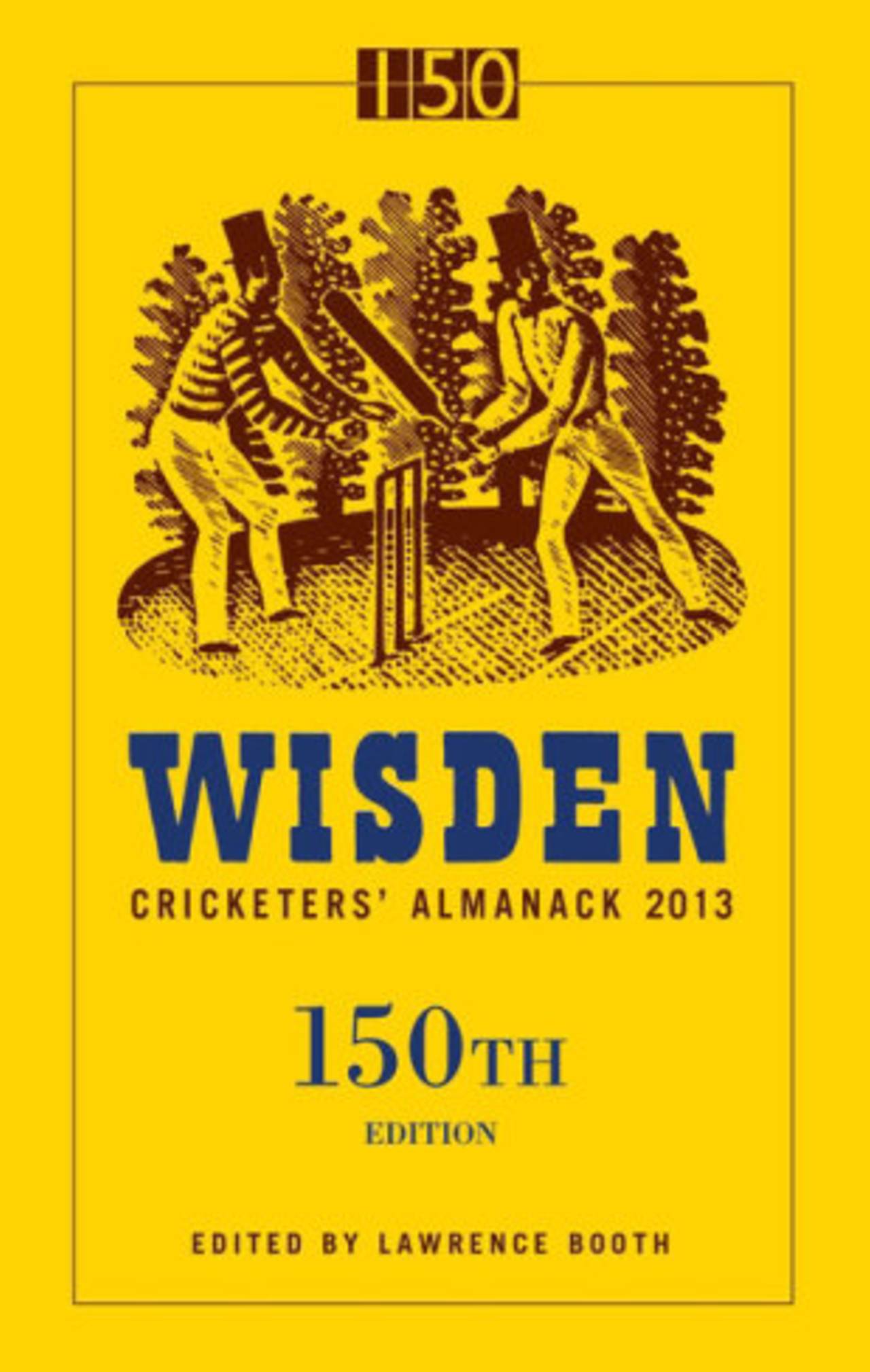A happy 150th to the big yellow brick
Another year, another Almanack. Only, this year's is rather a landmark
Les Smith
10-Apr-2013

Isaac Foot, the father of former Labour Party leader the late Michael, was such an extreme bibliophile that he secretly bought a house in London purely to accommodate his library. He couldn't help himself from buying, reading and keeping books.
There are like-minded people who cannot restrain themselves from buying, reading and keeping cricket books. If this is an addiction, there is probably no more powerful drug in the cocktail than Wisden. This year the addicts receive their 150th dose, and that is something to be celebrated by readers and contributors alike.
I have a ruler next to me and I estimate that if you are one of that exclusive group that possesses a full set, and they're not up in the loft with the family photographs and Christmas decorations, they are occupying between seven and eight yards of your shelving.
Completists, occasionals, and those who, like me, buy it every year then move it on for fear of being inundated, will all want to acquire Wisden 2013 for all the usual reasons. As usual we have comprehensive records of last year's cricket in Britain and around the world. These are the pages that require careful digging with the reader's equivalent of a gardener's hand fork. I confess that I have no need of page 1127, which records the second ODI between Sri Lanka and India last July, but someone will, and there it is. (Sri Lanka won by nine wickets).
Then there are the pages that lure the reader into the new domestic season. Parts Two (Comment) and Three (The Wisden Review), constitute in effect a free-standing book of their own. The list of contributors is a complete catalogue of the great and good of contemporary cricket writing, including the recently deceased.
Christian Ryan writes vividly about what it was like to play with and against Jeff Thomson. Ed Hawkins' exploration of illegal gambling in India is a bit like a John le Carré short story. There are tributes to recently retired giants of the game: Rahul Bhattacharya on Rahul Dravid and VVS Laxman, Scyld Berry on Andrew Strauss, and the incomparable Gideon Haigh on Ricky Ponting.
Best of all is the essay in which Michael Atherton attempts to pick apart the eternal questions about the contributions to excellence of, on the one hand, god-given talent and, on the other, disciplined development of skills. Atherton comes to his work with experience of cricket and captaincy at the highest level, then augments it with a breadth of scholarly research, and an ability to write with both formality and flair. In fact, he writes as he batted.
There is an additional reason for taking an interest in the latest edition of Wisden. It is the 150th, and it is with total justification that it is self-regarding in its first section. We have ten moments that changed the game for ever, reminiscences by the last six editors, and Patrick Kidd's account of being a Wisden collector: "Like kisses and cars, everyone remembers their first Wisden."
I wonder whether this is the first Wisden to contain an article about one of the Five Cricketers of the Year and an obituary of the author of that piece. Christopher Martin-Jenkins celebrates Jacques Kallis and is himself honoured by his son James and Mike Selvey.
Incidentally, it is interesting to compare the Test records of Kallis (162 matches, 13,128 runs, 288 wickets), and another of the Five, Nick Compton (7 matches, 440 runs, 0 wickets). That is no reflection on Compton, but accounts for my amazement that it has taken this long for Wisden to recognise one of the greatest allrounders in the history of the game.
It goes without saying that Wisden is a monumental achievement of commissioning, compilation and editing. The editor, in this case for the second time Lawrence Booth, more than earns the right to tell us what he thinks. He adopts an engaging narrative voice to take us through key moments in 2012, and a more assertive one about player rotation in Test cricket, the nurturing of spin on county pitches, and the scheduling of T20 cricket.
Wisden remains indispensable to cricket lovers of a certain age. I wonder about its demographic. I don't know, but I suspect that those of us who can't do without it would prefer 275 runs for five wickets on the second day of a County Championship match to 190 in 40 overs under lights. I hope I'm wrong.
I am of an age when both my memory and eyesight have become less reliable than they were, and I suspect that I share these deficiencies with many who will buy this marvellous book.
It will help with the memory issue. (Do you remember who scored 56 for England v India at Nagpur in December? Page 404). But with each year that passes Wisden becomes more difficult to read, even with the aid of glasses and occasionally a magnifying glass. Perhaps the large-print edition might become standard within our lifetime, even if it does spoil the symmetry of all those yards of shelving.
The 150th edition is accompanied by The Little Wonder, a history of Wisden written by Robert Winder. This is a an engrossing account of the story of the book that, this time every year, reminds us of why we get a little bit tingly about the weeks and months ahead.
Wisden Cricketers' Almanack 2013
edited by Lawrence Booth
Bloomsbury
Hardback, 1584 pages, £50

Buy Wisden 2013 at Cricshop
edited by Lawrence Booth
Bloomsbury
Hardback, 1584 pages, £50
Buy Wisden 2013 at Cricshop